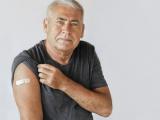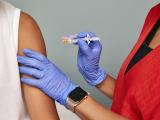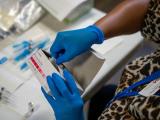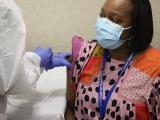Jul 19, 2012 (CIDRAP News) – With the United States heading toward the highest pertussis case count in decades, health officials have found an unusual illness spike in 13- and 14-year-olds in Washington state's epidemic that suggests waning vaccine immunity may be a contributing factor, the US Centers for Disease Control and Prevention (CDC) said today.
At a media briefing, Anne Schuchat, MD, director of the CDC's National Center for Immunization and Respiratory Diseases, said pertussis activity usually follows 3- to 5-year cycles, but the number of cases reported this year could reach a level not seen since 1959. So far, the CDC has received reports of more than 18,000 cases, more than twice as many as this time last year.
Several states are reporting heavy pertussis activity, though Washington is the only one that has declared an epidemic. ProMED, the online reporting system of the International Society for Infectious Diseases, yesterday highlighted reports of pertussis outbreaks in six states: Oregon, Nevada, Washington, New York, Minnesota, and Kentucky.
Babies, especially those younger than 3 months, who aren't old enough to be vaccinated, are at greatest risk for pertussis, a disease that is highly contagious and has one of the most complicated vaccination schedules. Schuchat said 10 infant deaths have been reported so far this year.
Schuchat, along with Washington Secretary of Health Mary Selecky, strongly urged pregnant women and any adults and family members who are in contact with babies to receive the tetanus, diphtheria, and pertussis (Tdap) vaccine. CDC numbers for 2010 suggest that only 8.2% of adults have had the vaccine, Schuchat said. "We can do better and we need to do better."
However, low adult vaccination levels are only one factor in the sharp rise in pertussis activity. Schuchat said the CDC, health officials from Washington, and other researchers are launching studies to tease out the role waning vaccine protection might be playing not only in Washington, but at the national level as well. Investigators will also explore if the Tdap booster strategy recommended for 11-year-old children is working, she added.
In 1997, a fairly high rate of minor side effects such as fever and injection-site reactions with the whole-cell pertussis vaccine led to a switch to an acellular version that has had a good safety record, but perhaps at the expense of effectiveness, she said. The unusual spike Washington and other states have seen in infections in 13- and 14 year-olds could represent the first cohort of children who didn't receive all of their diphtheria, tetanus, and pertussis (DTaP) doses as cellular vaccine.
Though the pertussis vaccine is imperfect, it is still important for reducing the impact of the disease, because vaccinated kids have a milder, shorter, and less severe disease course, Schuchat said.
Selecky said most of Washington's children are vaccinated, and health officials said vaccine refusal doesn't appear to be playing a key role in the growing pertussis burden.
On Apr 3, when the number of cases passed 640, Selecky declared a pertussis epidemic. So far, Washington has reported more than 3,000 cases, three times more than in all of 2011, she said, adding, "My biggest concern is the babies. They're the ones who get hit the hardest."
Washington health officials and their collaborators at the CDC profiled Washington's outbreak, including details such as the percentages of lab-confirmed cases and case numbers by age, today in the latest issue of Morbidity and Mortality Weekly Report.
Washington's public health officials have been very aggressive in the response, acquiring 27,000 doses of Tdap for uninsured people, pushing information out to health providers, and pressing an extensive media campaign that includes television, billboards, and social media, Selecky said.
Selecky added that there are some glimmers of hope: health plans are reporting higher number of adults getting Tdap, and the pace of new cases is slowing a bit. But it's too soon to say the outbreak has peaked, she cautioned.
"You're seeing public health in action. It's vital to invest in public health, and vaccination is the best protection," she said.
See also:
Jul 20 MMWR report
Jul 18 ProMED post




















